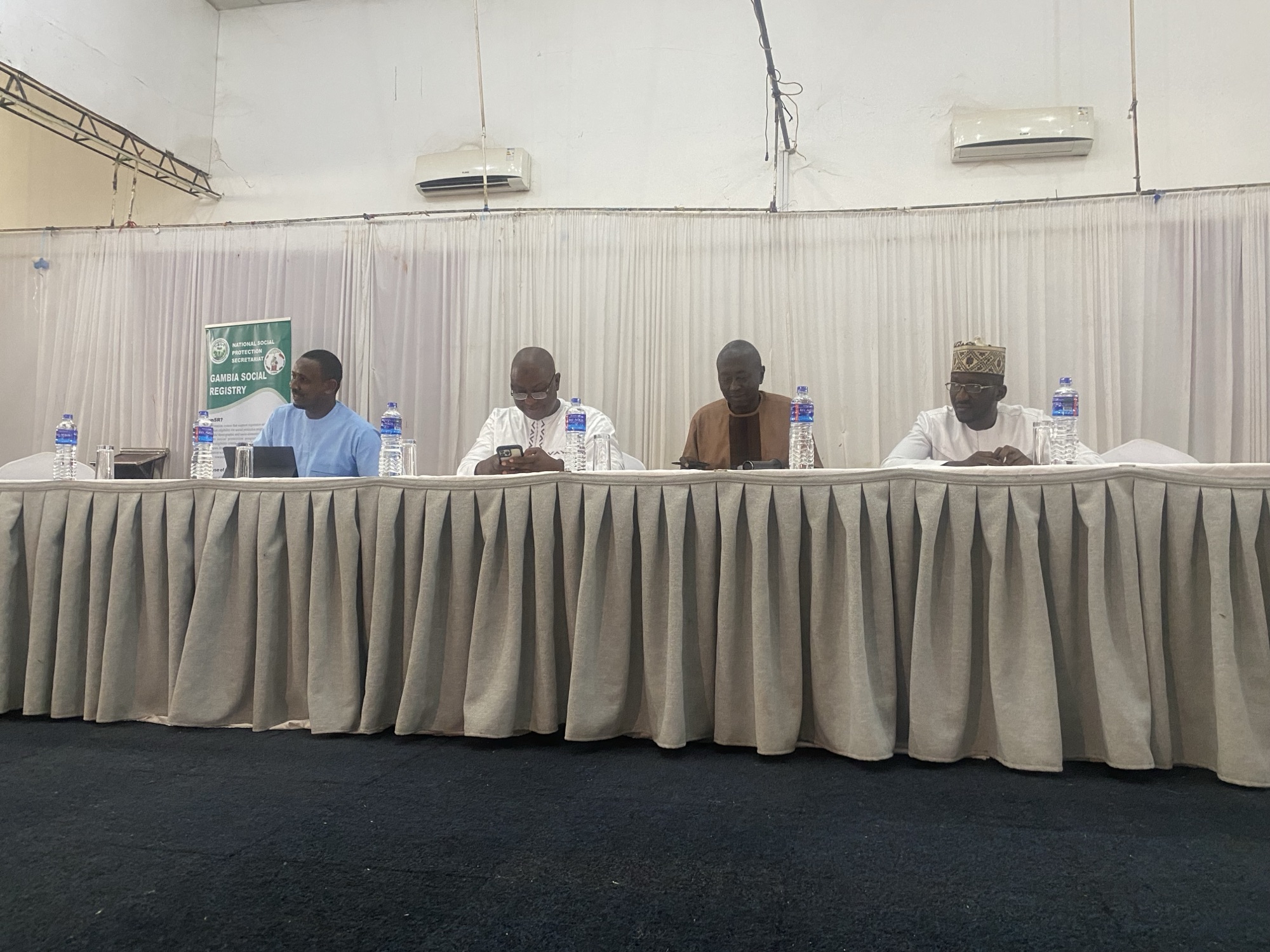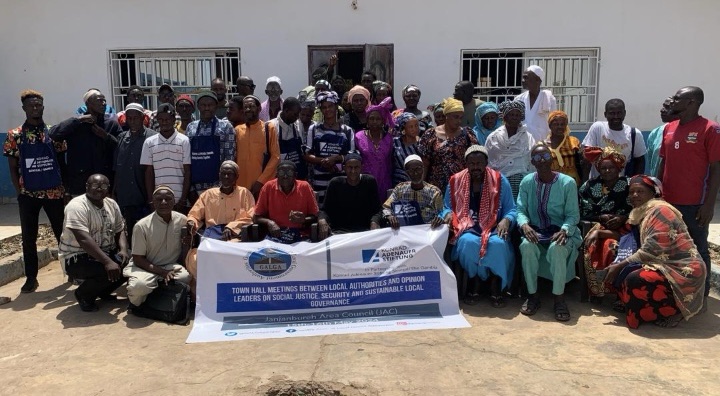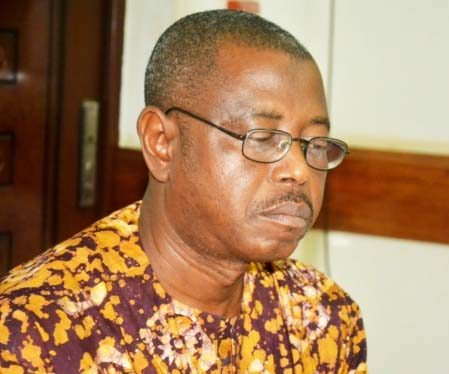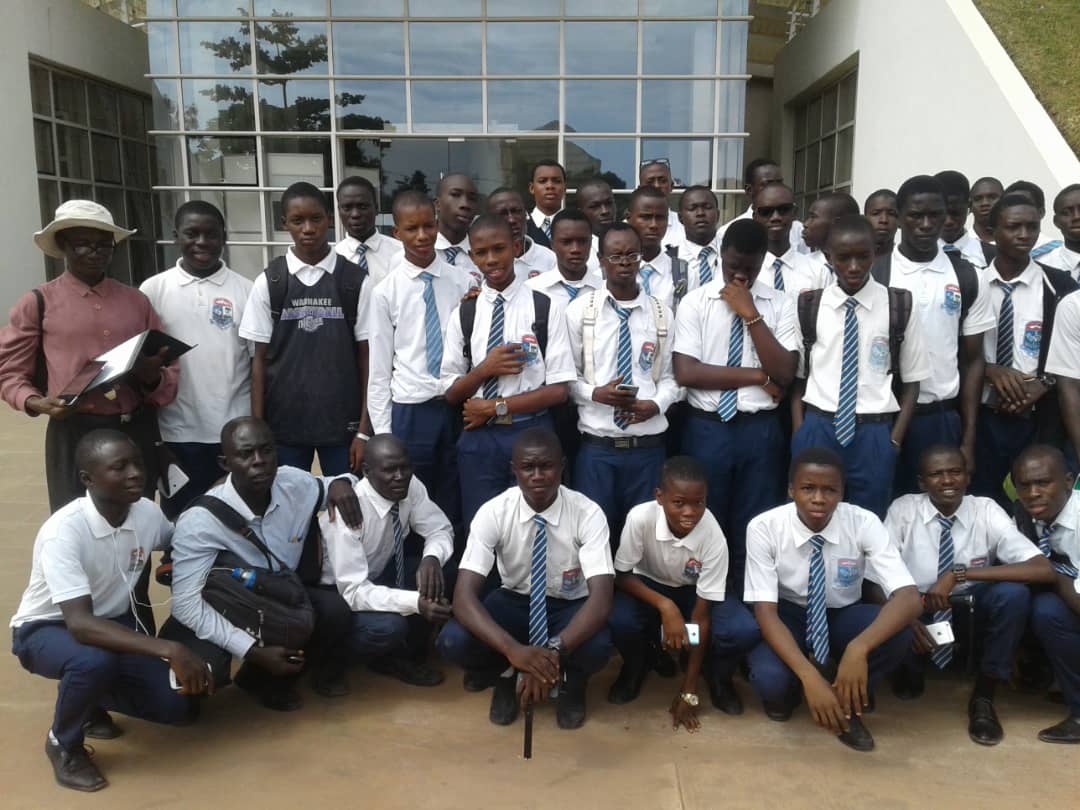By Arret Jatta & Fatoumata Konteh

The Gambia Bureau of Statistics (GBOS)has launched phase four of the social registry data collection and also trained young people who will be collecting data for the social registry, the event took place at the Pencha Mii Hall, Kololi on Thursday, 5th September 2024.
GBOS has done the first, second, and third phases of the social registry at URR, CRR, and LRR in 2016, 2020, and 2023 and just launched the fourth phase of the social registry for the year 2024 which will focus on Greater Banjul Area.
According to the Statistician General of GBOS, Mr NyakasiSanyang, the purpose of building the Gambia Social Registry (GAMSR) is to consolidate a single common database.
“The overall objective of this data collection exercise is mainly to build the Gambia Social Registry (GAMSR). The purpose of building the GAMSR is to consolidate into a single common database, key information about current and potential beneficiaries of social programs. Also, to create a single-entry point for the main social protection programs to access information about potential beneficiaries”, he explained and said cheating would not be compromised.
“Added to the work of our supervision and coordination team, spot checks will be conducted by another firm (CESPRAS) and this will increase the chances of one being caught if you try to do so,” he said.
He highlighted that payments will be done by installment and this will make it easy to reprimand anyone who tries to be unscrupulous.
“You will sign with us a contract that will enable us to control your payment if you are found wanting, and engage others to do the work assigned to you,” he noted.
Momodou K. Dibba, the head of the Gambia Social Registry explained in terms of census time social registry, the Gambia is supposed to be the first in sub-Saharan Africa to have a nationwide tour social registry which is confirmed as a knowledgeable effort from the secretarial and the Gambia Bureau of Statistics.
Notwithstanding, he advised the trainees to be accurate and always emphasize the beneficiaries state their socioeconomic status exactly the way it is.
“If you wrongly categorize someone, you can either include the person to where he is not supposed to be or you exclude the person and when they are excluded, they come directly to me as the National coordinator to give their complaint,” he further said.
The chairperson of the National Statistic Council, Mr SerignFalu Njie told trainees that the exercise they are about to embark upon is a very important aspect as far as development in the country is concerned.
“The data you are going to collect and the analysis that will come out of it will form the basis for the identification and targeting of members of society who will be eligible for support or who will not be eligible for support under the national social protection program,” he further highlighted.





